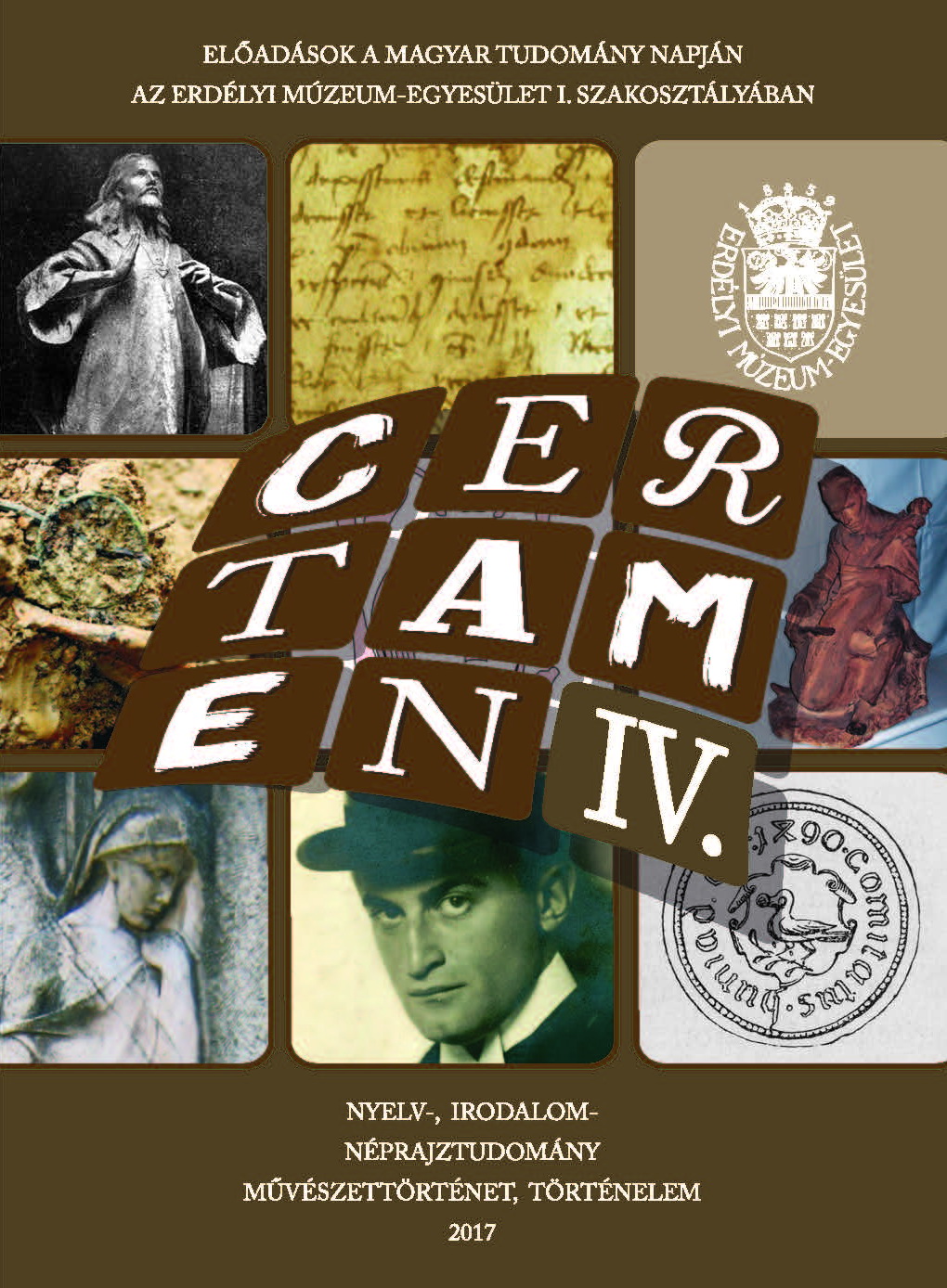Jósika Antal báró írásai és közéleti szerepvállalása
The Writtings and Public Activity of Baron Antal Jósika
Author(s): Klára PappSubject(s): Cultural history, 18th Century, 19th Century
Published by: Erdélyi Múzeum-Egyesület
Keywords: aristocracy; the Jósika family; aristocratic career; the Jesuit Order; estate administration
Summary/Abstract: A year ago, together with Orsolya Tóth, we have published a separate volume about the activity and preserved manuscripts of Antal Jósika (1745–1803). Previously only Jósika’s connections with the Freemasons were known, but the material preserved in the archives outlines a very active career of a talented and busy aristocrat, who in his youth was a member of the Jesuit Order. Between 1759 and 1761 the young baron Anthony attended the Jesuit grammar school and later the academy of Cluj-Napoca (Romania). His works reveal that he studied at Trnava (Slovakia) and taught at Székesfehérvár. In 1773, after leaving the Order, the 28 year old Jósika married the sister of Ferenc Teleki, Mária Jozefa and as a result of this decision his life took an entirely new direction. On the one hand, he had to regain his family estates and set their economy in order, and on the other hand he needed to overtake more serious political and public responsibilities. After leaving the Order, Antal Jósika moved to Transylvania and in 1773 he immediately demanded the split of the family estates between him and his elder sister in order to be able to overtake his due share of the estates. Being the Lord Lieutenant of Kolozs county, Article LXIV of the Diet of 1791 enabled him to be the member of the regular Committee of Urbarial and Educational Issues. Due to his views on the importance and use of the Hungarian language, Antal Jósika became an active member of those useful ambitions in Transylvania and Hungary, which, after the death of Joseph II, also appeared at the diets, in the pursuits of the orders and in the intellectual initiatives of both parts of the country and which in fact resulted in educational achievements. His manuscript entitled „Thoughts on the Education of the Catholic Youth” was probably written at the beginning of the 1790s and is in reality much more than a simple notion about the establishment of an education system. Jósika’s proposal about education closely correlates with the summary and proposal describing the contemporary state of the Catholic Church which is entitled „About the Compensation of the Deficiencies of the Transylvanian Roman Catholic Clergy, 1797”. Jósika died on January 16, 1803 in Cluj-Napoca. He was buried in the crypt of the Jesuit Church of the town and his widow found her final resting place there as well in 1815.
Journal: Certamen
- Issue Year: 2017
- Issue No: IV
- Page Range: 317-332
- Page Count: 16
- Language: Hungarian

